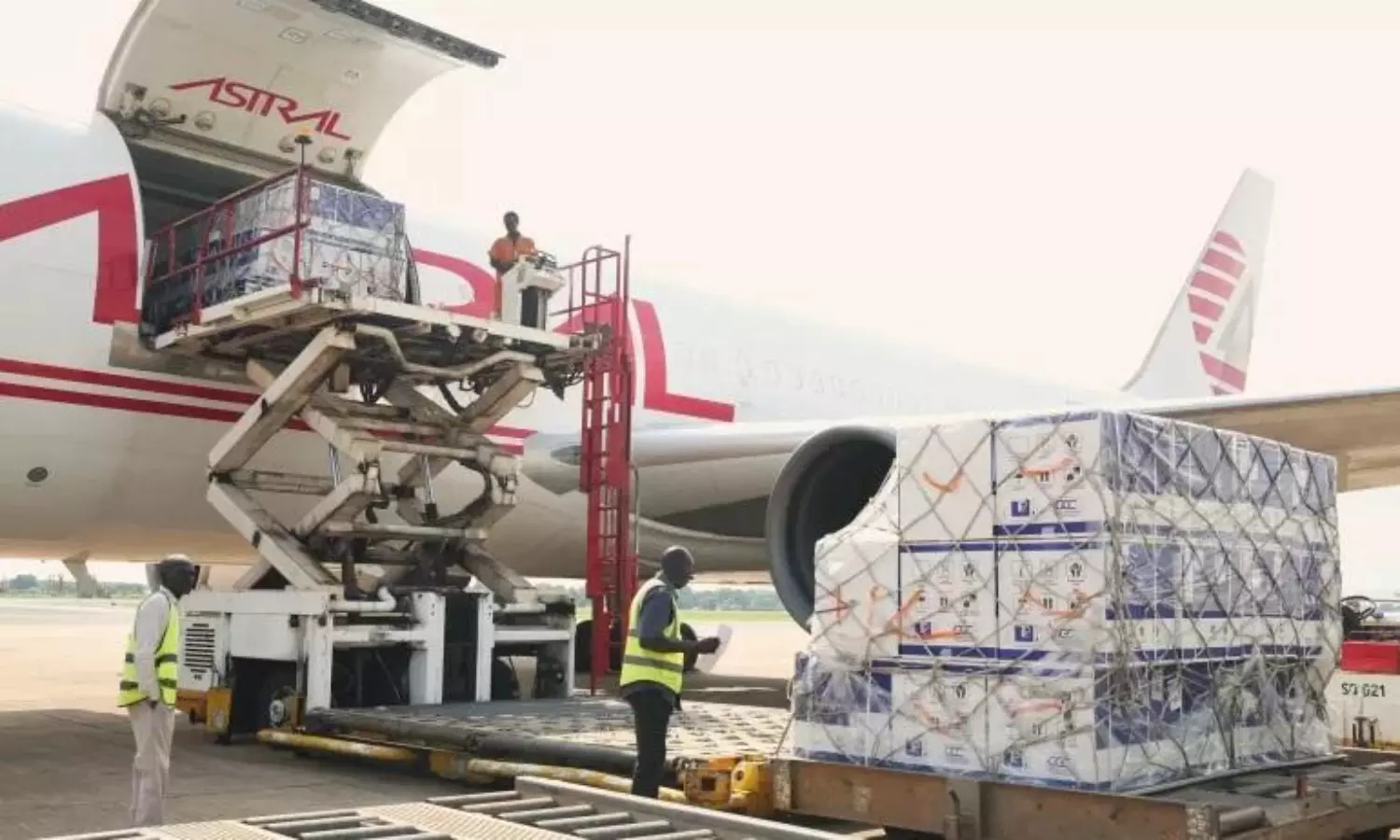South Sudan receives 645,000 doses of R21 malaria vaccine
Astral Aviation transported the vaccines from Nairobi to Juba on Boeing 767F

The Ministry of Health of South Sudan received over 645,000 doses of the R21 malaria vaccine in Juba, which will be distributed to 28 counties with the highest malaria burden.
"Malaria is the biggest killer of children in South Sudan," says a release from Unicef. "The country grapples with one of the highest malaria incidence rates in the region. In 2022, South Sudan had an estimated 2.8 million cases and 6,680 deaths. The country has one of the region’s highest rates of malaria incidence with an estimated 7,630 malaria cases and 18 people dying of the disease every day."
Kenya-based Astral Aviation arranged for the transportation of the vaccines. Astral performed one flight from Nairobi-Juba on the Boeing 767F to uplift the 645,000 doses of the new malaria vaccine which came in two doses in liquid vial, according to Sanjeev Gadhia, CEO, Astral Aviation.
The vaccine was kept at 2-8 C at the AFS Terminal in Nairobi, Gadhia added.
Yolanda Awel Deng, Minister of Health says: "Malaria is a major concern for our country. We are committed to reducing the impact of malaria and improving the health outcomes for our children. The continued use of this vaccine, alongside other preventive measures such as insecticide-treated bed nets and timely access to medical care, will be instrumental in our efforts to eliminate malaria in South Sudan.”
The endorsement of the R21 vaccine by the WHO, following the introduction of the RTS,S vaccine elsewhere on the continent, marks a turning point in the malaria elimination programme and will ensure a more robust supply of the vaccines for malaria-affected countries – particularly in Africa, the release added. "These vaccines have proven safe and effective in protecting children from malaria, potentially saving countless lives. With support from Gavi, Unicef is working to procure enough vaccines to immunise over 45 million children worldwide in the coming years."
Hamida Lasseko, South Sudan Representative, Unicef says: "The expanded availability of malaria vaccines heralds a new chapter in combating this deadly disease. The governments' proactive engagement and health systems' preparedness are pivotal in facilitating the successful rollout of the immunisation programme. Training, communication strategies and robust cold chain infrastructure are essential components in ensuring the widespread distribution of these important vaccines to protect the children of the country."
Dr Humphrey Karamagi, WHO Representative for South Sudan adds: "The introduction of the malaria vaccine is a pivotal development in our fight against malaria. This vaccine provides an additional, effective intervention to protect children and reduce the burden of this devastating disease. Its integration into routine immunisation will enhance our ability to deliver comprehensive malaria prevention to those most at risk.”
As many as 12 countries in Africa will be allocated a total of 18 million doses of RTS,S/AS01 for the 2023–2025 period. In addition to Ghana, Kenya and Malawi, the initial 18 million dose allocation will enable nine more countries including Benin, Burkina Faso, Burundi, Cameroon, the Democratic Republic of the Congo, Liberia, Niger, Sierra Leone and Uganda to introduce the vaccine into their routine immunisation programmes for the first time. This allocation round makes use of the supply of vaccine doses available to Gavi, Vaccine Alliance via Unicef, Gadhia added.


